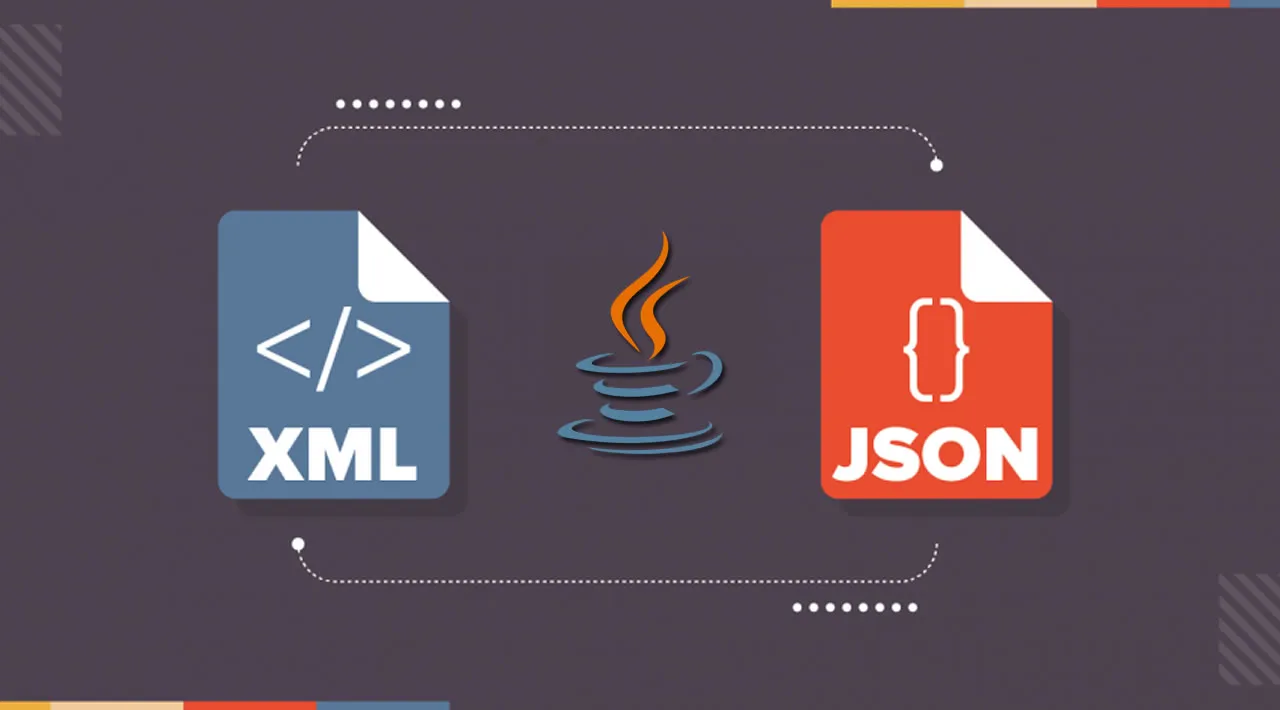How to Convert a JSON Object to XML or XML to JSON in Java
Learn how to easily convert a JSON object to XML or XML to JSON using APIs in Java.
Understanding how to convert between complex file types will allow you to optimize and perfect your operations, ensuring your data is always in the appropriate form. The two formats featured in today’s tutorial are JSON and XML. Both formats are widely used in web-based applications, but one may be more ideal than the other for certain objects. JavaScript Object Notation (JSON) is defined as an open standard file and data-interchange format that uses human-readable text to store and exchange data. It was initially developed from JavaScript, but as a language-independent format it can be used in many different programming languages. Due to its versatility, efficient design, and low cost, JSON has become a go-to for many businesses.
Our other format, Extensible Markup Language (XML), is similar to JSON in that they both are easy to read, create, and decode. However, XML uses prescribed tags that divide information according to its traits and has limiting factors associated with characters (i.e. !”*(), etc.). While this option may contain a higher word count due to the tags, it does allow for more precision in how data is read by the computer, including improved metadata usability, which is unavailable in JSON.
So, what does all this mean in terms of which option you should use? The answer is: it depends on the type of project you are working with. If it is a browser-based project, JSON is generally the best choice, while XML is best suited for server-based projects. No matter which format you choose, we have you covered with an easy way to move between the two. By utilizing the following APIs in Java, you will be able to automatically convert JSON to XML or XML to JSON with very little effort on your end.
To begin the process, we will install Maven by adding a reference to the repository in pom.xml:
<repositories>
<repository>
<id>jitpack.io</id>
<url>https://jitpack.io</url>
</repository>
</repositories>Then, we will add a reference to the dependency:
<dependencies>
<dependency>
<groupId>com.github.Cloudmersive</groupId>
<artifactId>Cloudmersive.APIClient.Java</artifactId>
<version>v3.90</version>
</dependency>
</dependencies>Once the installation is complete, we are ready to call our first conversion function, which will be converting from JSON to XML:
// Import classes:
//import com.cloudmersive.client.invoker.ApiClient;
//import com.cloudmersive.client.invoker.ApiException;
//import com.cloudmersive.client.invoker.Configuration;
//import com.cloudmersive.client.invoker.auth.*;
//import com.cloudmersive.client.ConvertDataApi;
ApiClient defaultClient = Configuration.getDefaultApiClient();
// Configure API key authorization: Apikey
ApiKeyAuth Apikey = (ApiKeyAuth) defaultClient.getAuthentication("Apikey");
Apikey.setApiKey("YOUR API KEY");
// Uncomment the following line to set a prefix for the API key, e.g. "Token" (defaults to null)
//Apikey.setApiKeyPrefix("Token");
ConvertDataApi apiInstance = new ConvertDataApi();
Object jsonObject = null; // Object | Input JSON to convert to XML
try {
byte[] result = apiInstance.convertDataJsonToXml(jsonObject);
System.out.println(result);
} catch (ApiException e) {
System.err.println("Exception when calling ConvertDataApi#convertDataJsonToXml");
e.printStackTrace();
}To ensure the operation is successful, you will need to input the following parameters:
- JSON Object – the JSON object you wish to convert.
- API Key – your personal API key. If you need to obtain a personal API key, you can do so by register for a free account on the Cloudmersive website; this will provide 800 monthly calls across any of our APIs.
Alternatively, if you need to convert XML to JSON, you simply need to input your target XML file and API key into the following code:
// Import classes:
//import com.cloudmersive.client.invoker.ApiClient;
//import com.cloudmersive.client.invoker.ApiException;
//import com.cloudmersive.client.invoker.Configuration;
//import com.cloudmersive.client.invoker.auth.*;
//import com.cloudmersive.client.ConvertDataApi;
ApiClient defaultClient = Configuration.getDefaultApiClient();
// Configure API key authorization: Apikey
ApiKeyAuth Apikey = (ApiKeyAuth) defaultClient.getAuthentication("Apikey");
Apikey.setApiKey("YOUR API KEY");
// Uncomment the following line to set a prefix for the API key, e.g. "Token" (defaults to null)
//Apikey.setApiKeyPrefix("Token");
ConvertDataApi apiInstance = new ConvertDataApi();
File inputFile = new File("/path/to/inputfile"); // File | Input file to perform the operation on.
try {
Object result = apiInstance.convertDataXmlToJson(inputFile);
System.out.println(result);
} catch (ApiException e) {
System.err.println("Exception when calling ConvertDataApi#convertDataXmlToJson");
e.printStackTrace();
}These tools will provide a quick and efficient way to move between these two popular data formats, ensuring you don’t miss a beat if you need to shift from one to the other.
Thanks for reading !!!
Originally published by Brian O'Neill at Dzone
#java #xml #api #json
